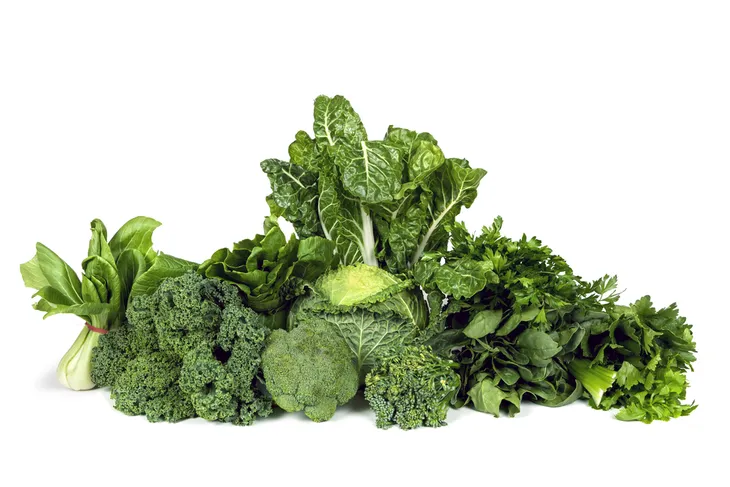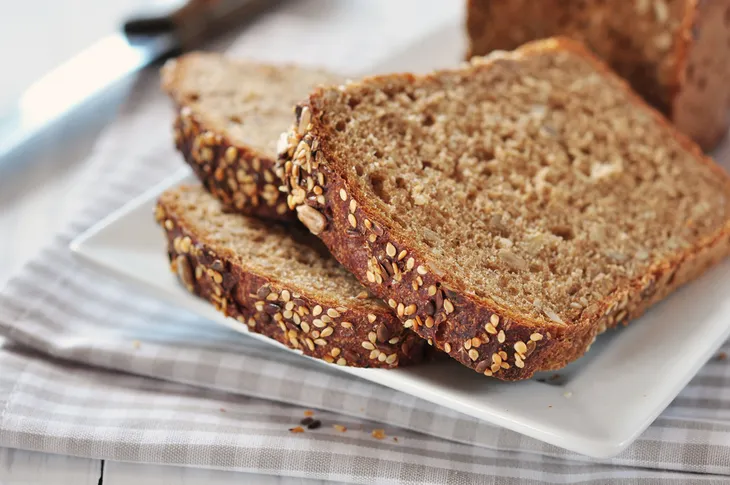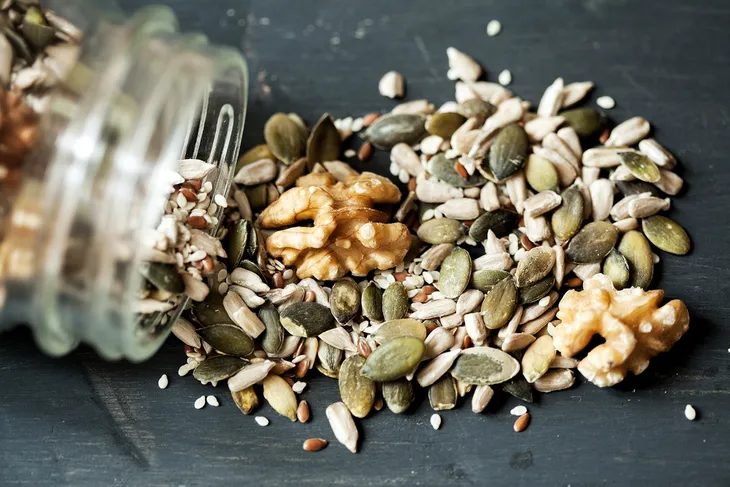Do you suspect your diet is literally giving you a headache? Well, it turns out there are some foods that can do the exact opposite, so if you experience the blinding pain that can accompany a migraine, then you’re going to want to learn these eating tips.
While there are other treatments available, adjusting your diet could make a big difference in how severe your migraine symptoms are. Let’s take a look at seven items you should add to your regular menu…
Dark Leafy Greens
Prevention explains that spinach in particular is high in certain vitamins – namely B2 and B6 – as well as Omega-3 acids that are “proven migraine reducers”. Vitamin B2 is often referred to as riboflavin, and “has been found to be effective at reducing headache frequency, intensity, and duration,” notes the source.
There are other leafy greens in the same family that can deliver positive results if you’re trying to lessen the grip of migraines. They include kale, amaranth leaves, arugula, beet greens, and lettuce, notes the site. “When searching for the perfect green, keep in mind that the darker the hue, the higher the nutritional value,” it adds.
Fish
Migraine.com notes that the Omega-3 fatty acids you get from fish is a key to helping you reduce or eliminate migraine symptoms. It’s the oil from fish in particular that’s most beneficial in this situation, as it can help reduce blood pressure and inflammation. For these reasons, fish oil also has a great track record for keeping hearts healthy.
Mackerel, tuna and salmon are named by the source as good sources of fish oil. However, it suggests considering fish oil supplements in capsule form, as there’s a chance fish can be contaminated with mercury. Supplements also come as liquids, flavored wafers, pudding packs, gummies, and other variations, adds the source.
Whole Grains
The American Migraine Foundation said you should be aiming to add whole grains to your regular diet, because of its fiber and vitamin content (it can also help keep your blood sugar stable, as fluctuating levels can cause headaches). Ditch the white bread, white rice and pasta, as they all have processed (refined) grains. Also watch out for the word “enriched” on the packaging.
The Mayo Clinic explains that there are whole-grain versions of your favorite pastas and bread (as well as cereals) at most grocery stores. Other sources of whole grains include brown rice, oatmeal, and even popcorn, adds the clinic.
Nuts and Seeds
Turns out small items like these can have a big impact on your migraines. StepToHealth.com touts sunflower seeds as one of the best for this purpose, specifically the salt-free variety. A handful of these per day will help deliver Vitamin E, fatty acids, and magnesium.
Other seeds recommended by the source include flaxseed, Chia seeds, and sesame seeds. Meanwhile, several sources note that almonds are a good alternative to popping a headache pill. FoodMatters.com notes almonds have salicin, which is also found in some over-the-counter painkillers.
Red Meat
Prevention says you should avoid meats that have been preserved by drying, pickling, smoking or salting, as they can actually trigger migraines (other sources note the nitrates in lunch meats can also lead to brain pain). However, while red meat gets a bad rap sometimes, the source notes all-natural beef “could be the solution to your never-ending headaches”.
It recommends the grass-fed variety, and adds that red meat is high in CoQ10, a compound that already exists in your body (which is also an ally to migraine sufferers), as well as Vitamin B2 mentioned earlier. Also, steak is delicious. However, everything should be consumed in moderation.
Eggs
The jury seems to be out on the effectiveness of eggs for reducing migraines – some sources, like Prevention, say they’re good for migraine sufferers because of the vitamin B content. It also notes that 2-large eggs contain 24-percent of your daily recommended intake of riboflavin.
On the flipside, other sources say eggs are a major migraine enabler. In fact, a source called MigraineKey.com lists 7-reasons why eggs are a no-no for those with migraines, not least of all the glutamic acid content of egg whites (which is apparently a “top migraine trigger”). Our advice on this one: if you don’t already eat eggs, then trying a couple might not be a bad idea to assess any positive impacts; if you do eat eggs, try cutting them out for a few days to monitor the difference.
Tea
Not all things we put into our body are in solid form, so we’d be remiss if we didn’t mention the possible healing powers of tea. MigraineAgain.com says that 2-teas in particular – peppermint and ginger – can help ward off bad symptoms associated with migraines.
Peppermint tea can settle an upset stomach from a migraine, and “the gut and brain are intimately connected,” it notes. Meanwhile, the source backs up the effectiveness of ginger tea for migraines by citing a study that showed this type of tea is as “effective as sumatriptan, a commonly prescribed med, when it comes to reducing migraine pain.”










